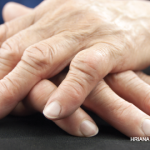NEW YORK (Reuters Health)—In women with rheumatoid arthritis (RA), menopause is associated with both functional decline and an acceleration of that decline, according to a longitudinal study from the U.S.
However, several factors involving increased hormonal exposure were associated with less-severe functional decline in women with RA: ever having received hormonal replacement therapy (HRT), ever having been pregnant and longer length of reproductive life.
“The older a woman with RA is when reaching menopause, the less difference in disability is seen. But overall, when reaching menopause, there is a worsening in function, or increased disability,” corresponding author Dr. Kaleb Michaud, of the University of Nebraska Medical Center, tells Reuters Health by email.
“Clinicians have a lot to keep track of when treating patients with RA. [Although] there are associations of improved symptoms of RA during pregnancy and worsening during the postpartum period, there hasn’t been as much attention paid to the impact of menopause,” he adds.
Dr. Michaud and his colleagues conducted a nationwide observational study of women using data from the National Data Bank for Rheumatic Diseases. Every six months, participants completed a questionnaire, one component of which was the Health Assessment Questionnaire (HAQ), which measures functional status.
According to the Jan. 29 online report in Rheumatology, all 8,189 participants had received a diagnosis of RA before menopause. The study excluded women who had undergone hysterectomy, were currently pregnant, had menopause onset before age 40, or were over age 55 and had not reported a menstruation cessation date.1
At enrollment, 2,005 participants were premenopausal, 611 were in the midst of menopause, and 5,573 were postmenopausal.
HAQ scores showed higher functional status (i.e., less functional decline) in premenopausal than in postmenopausal women. Furthermore, the annual deterioration in HAQ scores was more rapid in postmenopausal women.
“Our results highlight the possible importance of this change in hormonal status on the activity of RA in women,” says Dr. Michaud, who is also co-director of the National Data Bank for Rheumatic Diseases.
Although the study’s findings don’t support treatment changes, including HRT, he says, they do serve as a reminder “of how this natural change can have important impact on RA activity.”
The authors acknowledge that participants in their study had, on average, a higher socioeconomic status than RA patients in the general population, and therefore, may have been more likely to adhere to their medical therapies.
Women have a much higher risk than men of developing RA, and it’s thought that female hormones may play a role in this higher risk, Dr. Scott Zashin, of the University of Texas Southwestern Medical School, Dallas, tells Reuters Health by email. He was not involved in the current study.



